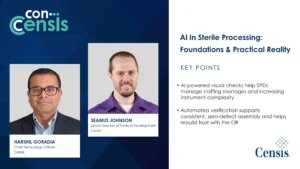From an Idea to Billion Dollar Company: How a Doctor Lobbied DC for HSAs
As most people know, unexpected visits to the doctor can lead to high medical bills. An estimated 1 out of every 5 Americans offset these costs by using a Health Savings Account or HSA to help them save for rainy days or simply to plan ahead. However, it wasn’t long ago that this now common practice wasn’t possible because of preexisting privacy laws.
On an upcoming episode of I Don’t Care with Kevin Stevenson, Kevin sits down with the Founder and Vice Chairman of Health Equity, Steve Neeleman. Steve was once a doctor and an aspiring entrepreneur who envisioned a concept where you buy insurance for the large events and put the difference in a HSA savings account, which could be used for the “small stuff.”
But, he discovered that when the law establishing HIPPA was passed there was a component that aligned closely with his concept for a health savings account, however, it was limited to a group of small business owners.
With the idea of creating a company called Health Equity, He works between shifts at the hospital on refining and executing the plan, begins lining up investors and takes time off to travel to Washington DC. As a citizen and physician, he lobbies for the passage of legislation for health savings accounts for companies of all sizes.
This is how the idea for his company, Health Equity, was formed. Between shifts at the hospital, he worked to refine his business plan, lining up investors and taking time off to travel to Washington D.C. to lobby for the passage of legislation for health savings accounts for companies of all sizes.









